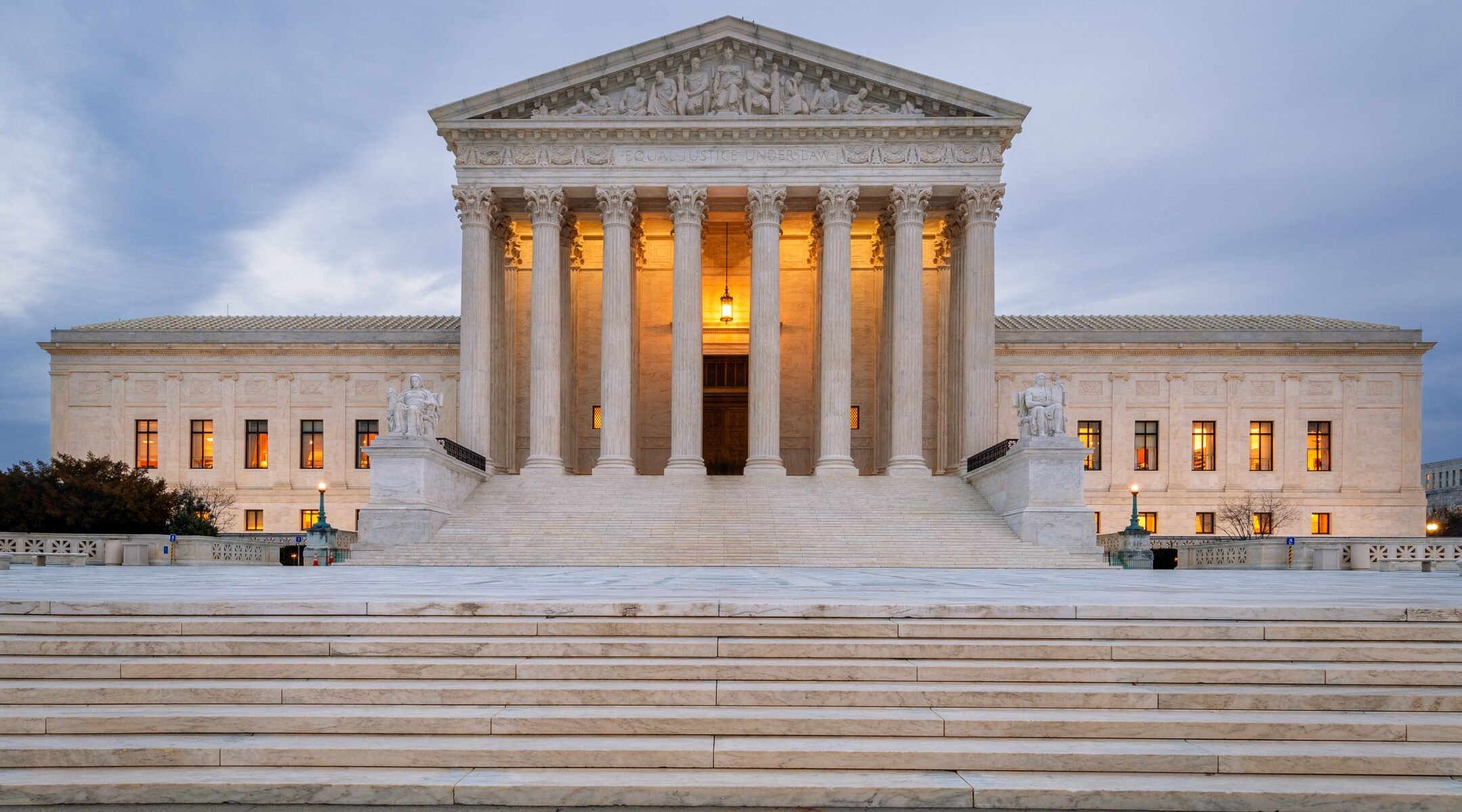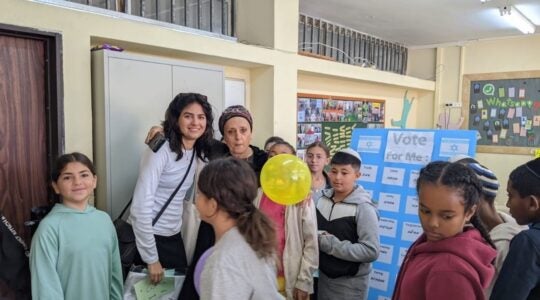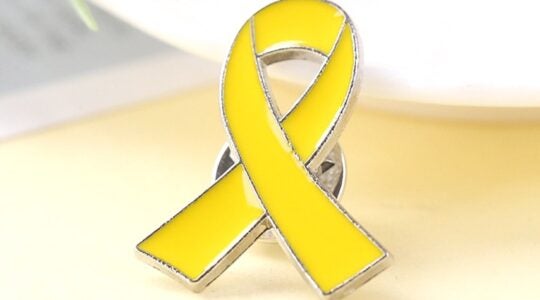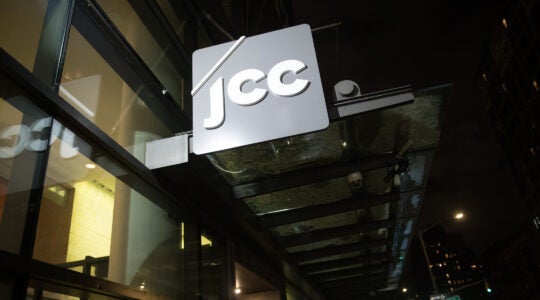This article was produced as part of JTA’s Teen Journalism Fellowship, a program that works with Jewish teens around the world to report on issues that affect their lives.
(JTA) — One year after the Supreme Court ruling in Dobbs v. Jackson reversed the federal guarantee of women’s abortion rights, a group of young activists are encouraging their peers to consider the ruling’s ramifications through a distinctly Jewish and teen-focused lens.
“I was distraught after the Dobbs decision leak came out, and I did not know how anybody in power could do that,” said Emily Levine, a junior at Scarsdale (New York) High School, after a webinar by and for teens that she co-organized to mark the anniversary of the Supreme Court decision, the gist of which was leaked in May 2022. “Especially to me as somebody getting ready to go off to college, feeling like I had no control and it was my body and my life that they were affecting.”
Levine, a participant in the Kol Koleinu Teen Feminist Fellowship — a program of Moving Traditions, a Jewish youth organization — partnered with another fellow, Noa Glezer, to organize the webinar, as part of the Kol Koleinu Teen Board, which Glezer founded.
Glezer, a junior at the Abraham Joshua Heschel High School in New York, worked on the event in response to the “existential crisis” she faced following the court decision.
Panelists expert in medicine, law and religion addressed the intersection of reproductive rights and Judaism.
“The overarching piece that links my Jewish work with my legal work is really about the power of text and interpretation,” said panelist Ariella Dubler, head of school at the Heschel School during the 90-minute event. “Roe[v. Wade], Dobbs, any issue that you care about that has constitutional roots, there are multiple ways to look at that text,” said Dubler, previously the George Welwood Murray Professor of Legal History at Columbia Law School.
Most American Jews and their representative organizations back abortion access, although Orthodox organizations support restrictions that allow abortion only under rare circumstances.
Last year Moving Traditions issued a statement calling the Dobbs decision a “horrifying rollback of fundamental rights for all people in the U.S.”
Dubler urged the teens “to really master a set of skills of interpretation that will let you work with other people to build movements and power around the issues you care about.”
“The best way to fight for what you believe in is to really appreciate the power of your interpretive skills in conversation with others,” said Dubler. “What I hope everyone going off to college takes with you is that you are as powerful as the skills and the communities that you build.”
Panelist Emily Birenbaum, a Jewish obstetrician/gynecologist in Berkeley, California, said that after taking a long break from clinical gynecology, she felt a “moral obligation” to return to her prior field to ensure that young women were receiving appropriate reproductive care in the aftermath of the Dobbs decision. “What brought me back to women’s health was the fact that women’s rights were being trampled and taken away and somebody who was not ready to become a parent was going to be forced into becoming a parent,” she said.
Amanda Kleinman, senior cantor at the Westchester Reform Temple in Scarsdale, New York, reviewed Biblical texts that convey understandings of abortion in Judaism. Kleinman cited a case from Exodus where a pregnant woman sustains an injury as a bystander during a fight and miscarries. The party who shoved the woman is required to pay a fine, but is not held accountable for murder.
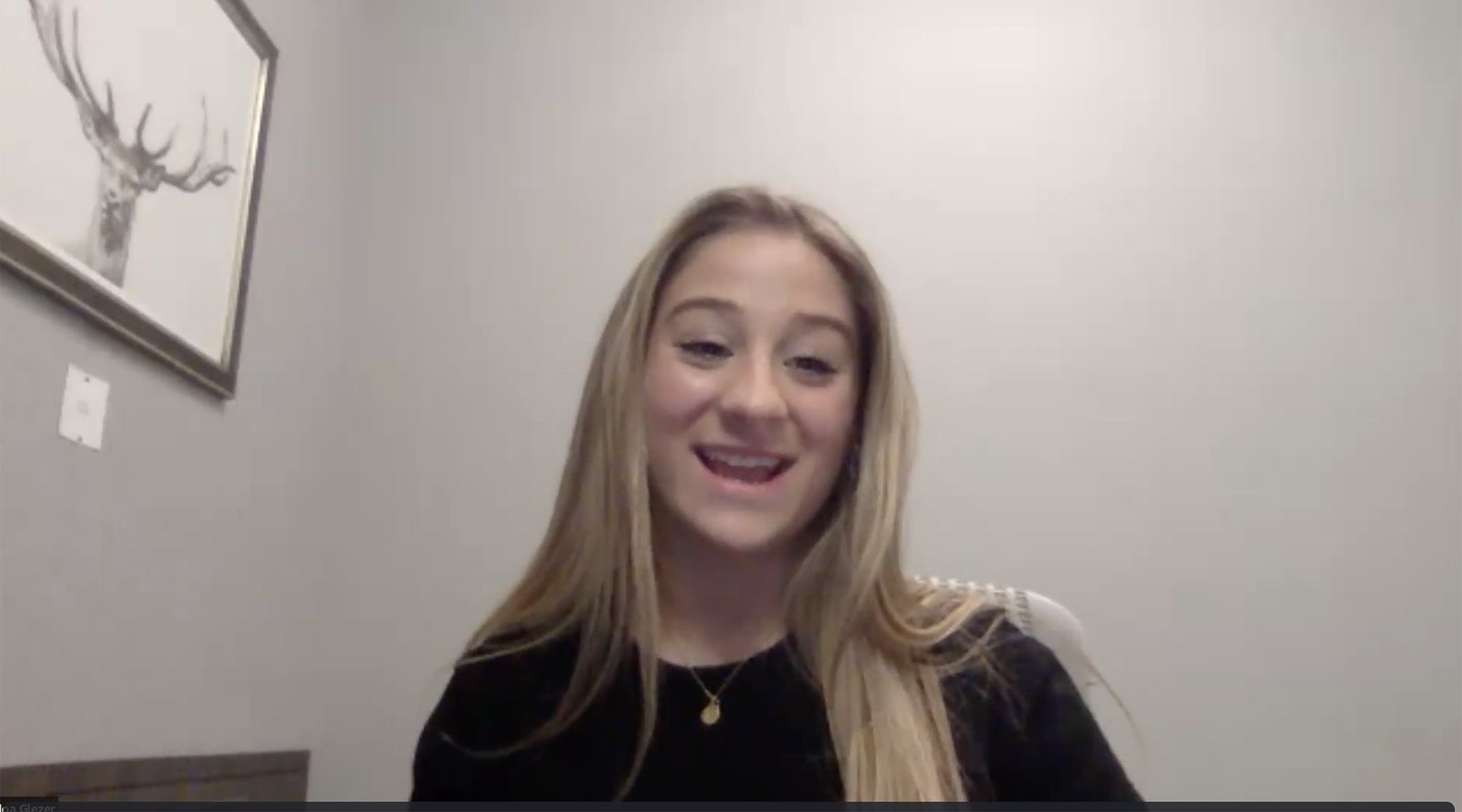
Noa Glezer, a junior at the Abraham Joshua Heschel High School in New York, co-organized the Moving Traditions event in response to the “existential crisis” she faced following the court decision striking down Roe v. Wade. (Screenshot)
“The fetus holds a status that is different from the status for instance of the mother of the fetus, and the life of the pregnant person is the most important value in this conversation. The Jewish tradition even requires that a pregnancy be terminated if the life of the person who is pregnant is at risk,” she said.
As a native of Texas, which has one of the strictest abortion bans in the United States, she described her “strong obligation as a spiritual leader of a congregation to use the platform that I have to help make sure that members of my congregation have the opportunity to explore this issue [abortion] from a Jewish perspective.”
After the webinar, Glezer and Levine told the Jewish Telegraphic Agency that they became involved with Moving Traditions and designed the webinar to educate other teens about restrictions on reproductive rights and encourage them to act. “It is really hard to get taken seriously [as a teen] and educating yourself and having the facts and knowing what you are talking about. Being able to back that up has been really important to getting what we want [and] to make our voices heard,” said Levine.
She and Glezer want teens to be empowered to fight for social change. “Teens are the future. Teens are the present. Teens have the power to make this change and not only that, but this is our world and we are soon going to be the people in positions of power, in leadership positions, controlling the future of the world,” said Levine.
Reflecting on the event, Glezer said “the effect it has on me as a Jewish teen is that it gives me hope. Looking at the incredibly wise Jewish adults sharing their knowledge with Jewish teens and rallying the Jewish community in the face of challenge teaches me about my own rights as a Jew but also shows me that my community supports my religious and privacy rights.”
JTA has documented Jewish history in real-time for over a century. Keep our journalism strong by joining us in supporting independent, award-winning reporting.
